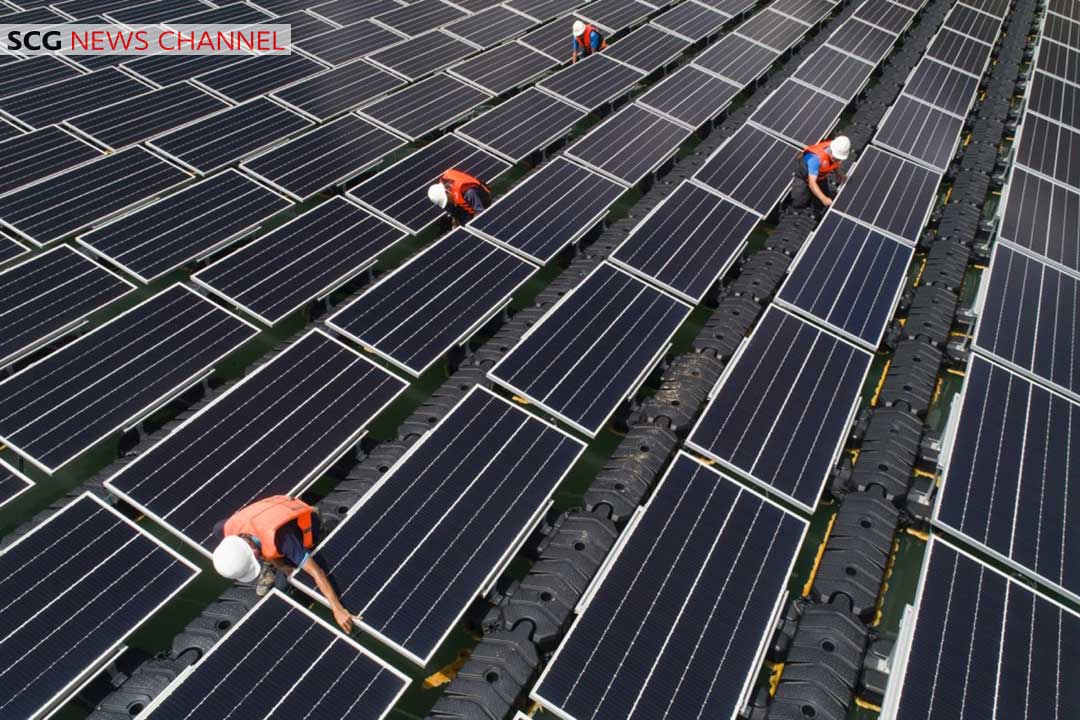Wednesday, 25/02/2026 | 01:45 GMT+7
Regarding the development of SCG Chemicals, the company will expand its use of colorless and odorless gaseous hydrocarbon ethane to reduce its dependence on naphtha while lowering carbon emissions and saving on costs.

SCG's goal is to increase green energy capacity to 3,500 MW by 2030. (Photo: CSG)
Naphtha, also known as light oil, is primarily used as a feedstock in petrochemicals, which can be processed into basic chemical raw materials like ethylene and propylene. Its price often fluctuates with crude oil prices, ultimately raising raw material costs. Over the past three years, ethane has been about 40% cheaper than naphtha.
Sakchai Patiparnpreechavud, CEO of SCG Chemicals, noted that the price of naphtha is around USD 650 to 700 per ton, while the price of ethane is less than half, at about USD 300 per ton.
In the future, SCG Chemicals plans to purchase large quantities of ethane from the United States, targeting a scale of 55,000 tons by 2027 and 200,000 tons by 2029, to supply the Long Son Petrochemicals complex in Vietnam. If the plant successfully commences operations in the third quarter of this year, SCG Chemicals' revenue share from the parent company will significantly increase from the current 39% to 60%-70%.
Meanwhile, SCG Cleanergy, responsible for renewable energy business, will focus on three main areas: expanding power generation capacity, entering global markets, and developing new energy products.
In terms of solar energy, wind energy, and rooftop solar businesses, the goal is to increase installed capacity to 3,500 MW by 2030. In addition to Thailand, SCG Cleanergy is actively seeking investment opportunities in ASEAN countries such as Vietnam, Indonesia, and the Philippines.
For new energy products, SCG Cleanergy is developing tandem perovskite solar cell technology, which helps lower the adoption costs for manufacturers. Additionally, the company plans to invest in the energy storage sector by developing thermal battery technology specifically for cement plants, which can convert solar-generated electricity into thermal energy. A facility is already under construction at the cement plant in Saraburi.
According to Reccessary








 Consultation on the methodology for developing and updating energy consumption standards for four major industrial sectors
Consultation on the methodology for developing and updating energy consumption standards for four major industrial sectors
 Opening of the 2025 Energy-Efficient Equipment and Green Transition Exhibition Fair
Opening of the 2025 Energy-Efficient Equipment and Green Transition Exhibition Fair
 Energy-saving solutions and green transition promotion
Energy-saving solutions and green transition promotion
 The 9th VEPG Steering Committee Meeting: Strengthening Coordination for Viet Nam’s Just Energy Transition
The 9th VEPG Steering Committee Meeting: Strengthening Coordination for Viet Nam’s Just Energy Transition